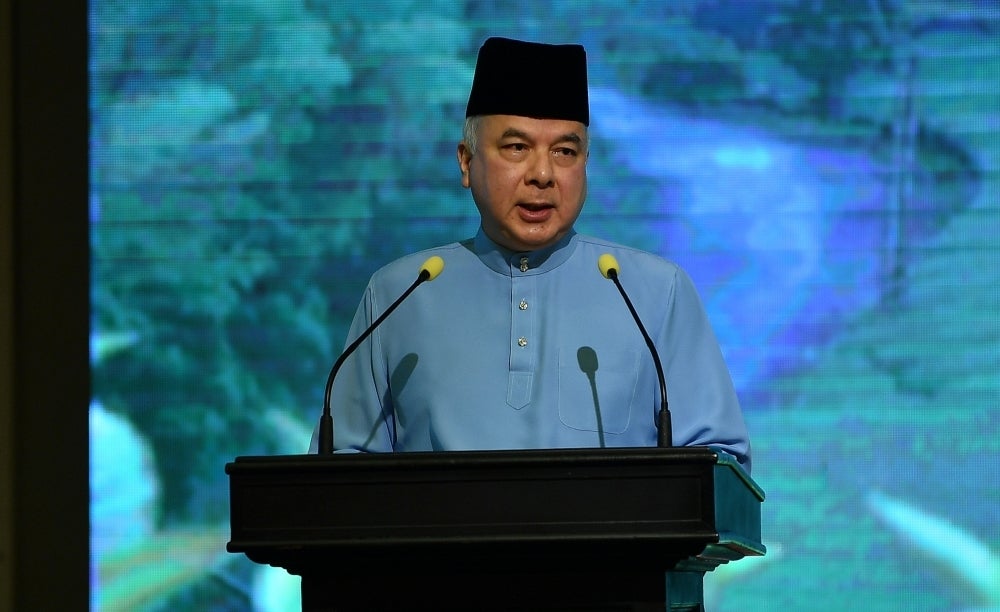Sultan Nazrin: Establish Asean Islamic finance institution for greater global expansion
16 Aug 2022 12:16pm

Sultan Nazrin said a key feature of the sector will be its international dimension, as Islamic finance becomes an increasingly important part of the global financial landscape. - Bernama Photo
Speaking at the 17th Kuala Lumpur Islamic Finance Forum 2022 (KLIFF), His Royal Highness said the proposed institution would facilitate inward foreign investment to finance infrastructure and similar projects in the region.
These could help to stimulate trade and to boost employment, something that is very necessary, given the large populations of many ASEAN nations, he said.
"Global economic activity continues to shift eastwards. We have seen the continued growth and expansion of consumer markets in the region, the formation of extensive trade networks and the creation of an increasingly business-friendly environment in the region.
"The Islamic finance sector can both participate in and promote further growth across ASEAN through its role in galvanising investment with a focus on social value-creation,” Sultan Nazrin said in his royal address at the forum today.
Sultan Nazrin said a key feature of the sector will be its international dimension, as Islamic finance becomes an increasingly important part of the global financial landscape.
An industry which remains locked down in the domestic market is unlikely to prosper, particularly the financial products and services, he said.
"The expansion of Islamic finance into different markets reflects broader patterns of global financial and economic integration. These include the continued strengthening of financial and economic linkages between Asian and Middle Eastern countries.
"We also see the increasing reach of Islamic finance beyond both the traditional Muslim countries and the more established financial centres.
"For issuers, Islamic finance is increasingly viewed as an attractive alternative for raising capital, while investors are increasingly looking at it as a new asset class for their portfolios,” he said.
His Royal Highness noted that the continued global expansion of Islamic finance took place despite the challenging environment in the last decade or so due to the global financial crisis, and more recently, the pandemic.
This demonstrated the resilience of Islamic finance as a stable financial system, something that should inspire others to engage with the sector, he said.
He added that the internationalisation of Islamic finance has intensified post-pandemic, where increased collective efforts are urgently required to ensure this sector is similarly subject to coherent and high-quality regulation.
These regulatory structures must reach across all borders, with the universal application and enforcement of all the required standards as this would contribute to the more successful international integration of Islamic finance.
"There is currently an urgent need to mobilise greater international cooperation in order to maintain global financial stability.
"The recent pandemic has shown how cross-border financial integration must be accompanied by international cooperation and coordination. This is necessary to prevent cross-border regulatory arbitrage as well as the risk of contagion effects,” he said.
Meanwhile, Sultan Nazrin said Malaysia has long been recognised as a global leader in Islamic finance, and its progress has continued despite the challenging global financial and economic environment.
He noted that despite global challenges brought about by the pandemic and war in Ukraine, Malaysia’s capital market remained resilient, including the Islamic capital market which grew by 11 per cent in 2020, up from 8.0 per cent in the previous year.
By June 2022, the Islamic capital market was worth an estimated US$500 billion and Shariah-compliant securities now account for nearly 80 per cent of the listings on Bursa Malaysia, he said.
His Highness said one of the most crucial elements of a vibrant and flourishing Islamic finance industry would always remain its Shariah roots.
"As ever, the Islamic tradition will continue to serve as a driver for innovation, bid’ah hasanah (good innovation), and creativity in the sector.
"Efforts must thus be made to ensure that the full potential and wisdom of the Shariah classical tradition is being harnessed,” he added. - BERNAMA











